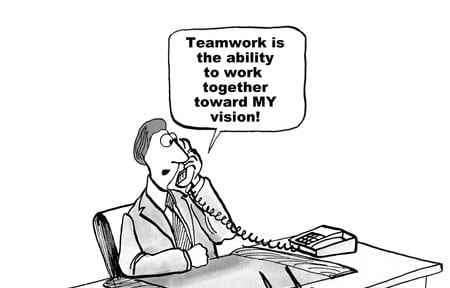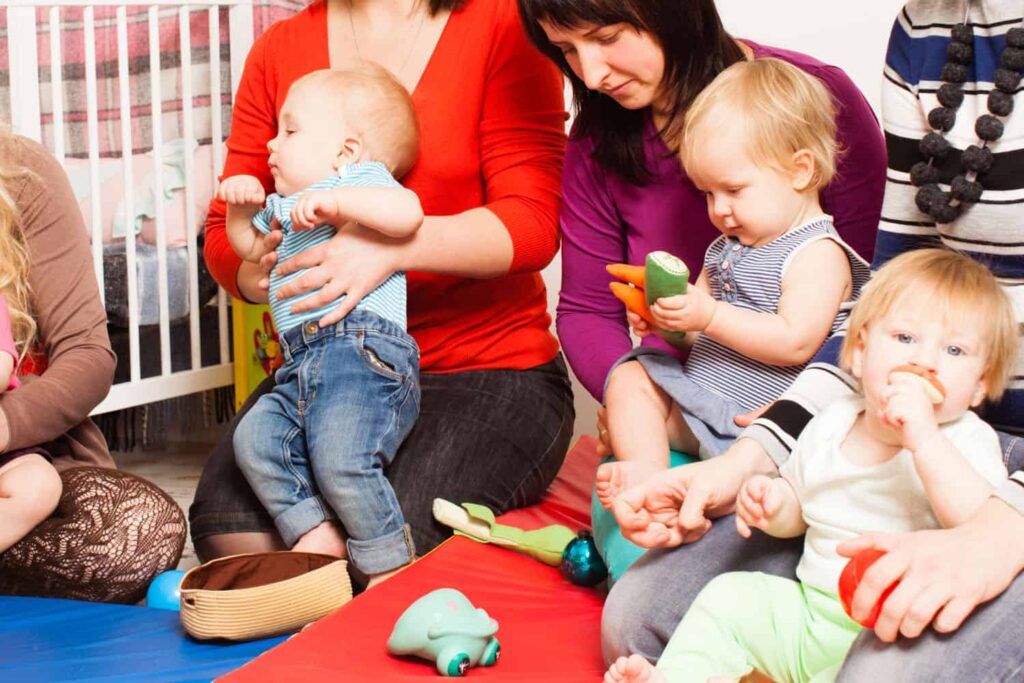The Standard of Kindergarten Consultation on Changing a Publicly Revered ECE Service.
An Opinion Editorial.
By Dr Sarah Alexander.
August, 8, 2017.
The problem
Kindergartens have become established and exist today due to a whole lot of community hard work and goodwill, taxpayer money, access to crown land and resources, parent donations, gifts and bequests. They are owned by their communities in partnership with the State, and are controlled by associations formed for that purpose.
So when one association which has done very well from such support takes a position that it is exempt from engaging in proper and full consultation over major changes with those who are directly affected, it is right that concerns are raised. The association is the Auckland Kindergarten Association (AKA).
What’s happened – Kindergarten consultation
The AKA has signalled an intention to break with the kindergarten model of being associated with public school education and having children’s education as the sole purpose.
It wants to become a fully-fledged provider of childcare for working parents and to grow its revenue base to fund business expansion and make it a strong competitor in the childcare industry. The changes it intends making toward this goal are to:
- Cease giving children and teachers term breaks,
- Shift from a maximum 6-hour day to longer,
- Remove free access to early childhood education for many families, including vulnerable families (a government priority) and those who cannot afford to pay. This will be in breach of its own long-held principle and that of the kindergarten sector in general, of not excluding children of families who cannot afford to pay. According to a statement of evidence provided by the Assistant Manager Peter Pablecheque on behalf of the AKA to Auckland City Council in 2016, the association was formed in 1908 “with the aim of providing free kindergarten services to Auckland. It has been operating as a charitable trust since that time”, and “it is a principle, more than a century old, that no one gets excluded from one of our kindergartens because they cannot afford to pay”.
These changes certainly represent a “bold” move, as the AKA says. The AKA states the changes will help it to maintain and grow its 109 year old kindergarten legacy for future generations. It has argued that the following are the key principles of kindergarten and that these will remain its “guiding force”:
- “Equitable access for all children, free from discrimination” (but note that families who cannot afford to pay could be less likely to consider kindergarten as an option and the AKA will have the capacity to turn the children of these families away as well as children with behaviour or special needs who cannot be provided for within the usual programme. Should the AKA choose to use the Equity funding it receives from Government to cover fee charges at some kindergartens in low socio-economic areas this will mean that the funding is not going into things that could matter a lot for equity of outcomes for children such as special resources, extra teaching assistance, breakfasts for children, etc.).
- “Children learning through play” (but this is actually an early childhood education principle and not one that can be claimed to be unique to kindergarten).
- “Qualified early childhood teachers who implement the NZ Curriculum Te Whāriki” (however the implementation of Te Whāriki is a legal requirement for all licensed early childhood centres and is not an option and is not unique to kindergarten. AKA also currently employs both unqualified and qualified staff).
- “Education and care of the highest quality” (but the changes it is planning to make have not been shown to be better for children and go against research evidence on what we know produces care and education of the highest quality).
The changes will affect teacher workload and teacher and child stress and wellbeing. Children with special needs will be spending longer at kindergarten without necessarily a matched increase in funded Ministry of Education support. Parent to parent communication and support will become a thing of the past in kindergartens when children are attending different days and arrival and departure times vary. There will be considerably less teacher non-contact time available for curriculum planning, child assessments, meetings with parents and other teacher professional activities.
The AKA’s chief executive, Tanya Harvey has issued three open letters concerning the changes:
- Issue 1, 7th March 2017 – This letter informs of proposed changes and the transition process to be followed in order to “secure our legacy for future Auckland families”.
- Issue 2, 28th March 2017 – This letter defends the Plan as outlined on 7th March. It states “some people are applauding the AKA for being ‘bold and courageous’ in addressing the issues we face and adapting our model to better work for many families”, and that “there is a lot of information circulating from a variety of sources – and not all of it accurate”. Parents are warned not to talk with their child’s teachers about the effects of the changes.
- Issue 3, 15 June 2017 – This letter again defends the Plan and appears aimed at neutralising any vocal opposition “We have received a small number of responses from concerned kindergarten families. It is important to note that these e-mail, phone and Facebook responses come from less than 2% of our families which suggests that the vast majority understand why we are needing to head down this path”, and “while it is absolutely right that we acknowledge the concerns from a vocal minority, the needs of our silent majority are also important”.
Ms Harvey claims to know the perspectives and needs of families who are not voicing opposition to the changes. But by her own admission she is not known to the majority of parents (first letter: “Many of you will not know me but I have headed the AKA for almost two decades”).
There can be many different reasons for silence, and silence cannot and should not be taken to mean consent or agreement.
It is noteworthy that a parent initiated petition has more than 2,000 signatures against the changes. The AKA’s annual report of 30 June 2016, states that 6,058 children are enrolled at its kindergartens – two percent of 6,058 children is 120 children. Even if we put aside the petition, Ms Harvey’s claim of an opposition of less than 2 percent seems to be a significant underestimation.
Teachers have been placed at risk by their employer – the AKA and Ms Harvey of breaching the values that underpin the Education Council Code of Professional Standards and that “define, inspire and guide us as teachers” as they have been gagged from talking with parents about the changes and the effects on children and families, and advocating for children. Certificated teachers are expected to display the values of:
WHAKAMANA: empowering all learners to reach their highest potential by providing high-quality teaching and leadership.
MANAAKITANGA: creating a welcoming, caring and creative learning environment that treats everyone with respect and dignity.
PONO: showing integrity by acting in ways that are fair, honest, ethical and just.
WHANAUNGATANGA: engaging in positive and collaborative relationships with our learners, their families and whānau, our colleagues and the wider community.

Governance and management
A question that needs to be answered is: Who is really calling the shots?
As the integrity of the AKA has been called into question by parents, within the media, and even perhaps by the Prime Minister, there is a governance issue that needs to get sorted if the Board did not delegate to Ms Harvey and if it has not instructed on and approved the actions of Ms Harvey. If Ms Harvey is calling the shots without the full support and knowledge of the Board then this is an employment issue for the Board to address. (See the Appendix at the end of this article for more information about the AKA, its chief executive and board members).
A press release issued by the Ministry of Education in May 2017 singled out and praised the AKA as a finalist on the shortlist for a Prime Minister’s Education Award. But in June 2017 the prize for Excellence in Governing was not awarded, which is most unusual. Complaints had been received by the Minister of Education about the AKA’s governance following the announcement of it being shortlisted as worthy of the Excellence in Governing prize. Publicly, Nikki Kaye said only in explaining why the prize was not awarded “the bar for winning an award is set high on purpose”.
Ms Harvey has had to publicly defend the Plan and argue against parent views on national radio and in print media – which is nothing short of a PR disaster.
But what matters as a community organisation is whether or not there has been a real commitment to full and proper consultation. How does the Board and AKA know that the changes are necessary if there has not been full and proper consultation with all affected parties? Are there other options that could be better? Do the people they are working for (families and kindergarten community members) see that they are working in their best interests? The courts have held that consultation requires the following four elements:
- Adequate notice;
- Adequate information;
- Adequate time to respond; and
- The consideration of the views of all affected parties with an open mind.
The Quality of Kindergarten Consultation
Adequate notice
Adequate notice was not given to allow for parents to have knowledge of the development of the Plan and provide ideas and input.
Toward the end of 2016 a parent survey was carried out by the AKA across all kindergartens prior to the announcement of plans to changes kindergartens. It was not made clear to parents what the implications of their responses would be, whether the survey would be used as part of consultation to make fundamental changes to kindergarten operation, and the questions relating to hours and weeks of operation were buried within the survey.
Following the announcement of the Plan by way of the 7th March 2017 Open Letter, a petition opposing the Plan was started which is an indication that parents were not given adequate notice and consideration.
Adequate information
Lawyer and parent Melanie Sharma-Barrow identified that adequate information and detail was lacking and wrote to Ms Harvey about this:
You use the words ‘societal demands’ and ‘rapidly changing needs of the community’ as reason for the Plans, but do not describe what they are. Are you talking of immigration into Auckland and how this has resulted in more childcare facilities catering for migrant working parents? Or are you talking about the current parental norm to put children into day care when parents are not working? Or are you talking about the rise in maternal age of first time mothers which results in more women having established careers before becoming parents and so being working parents? The possibilities are vast. What are you describing exactly and what evidence are you basing the Plans on?
And Melanie Sharma-Barrow asked, “Who are the future Auckland families? Don’t the present families matter?”
Another reason for the changes put forward by Ms Harvey is to attract parents who do not use kindergarten because the hours do not suit. “[We] found many families wanting to take up the kindergarten experience for their children, but were unable to do so because they were working, kindergarten hours were too short, and we did not offer services in school holidays. This has meant that as much as these parents want their children to benefit from kindergarten; what we are providing currently simply doesn’t work for them and their families, and as a result, we are unintentionally taking ourselves off their list of possible ECE choices.”
Information relating to any consultation with parents using other early childhood services and the number of parents who would likely shift to kindergarten has not been provided, suggesting that this is an assumption only on Ms Harvey’s part. A potential risk that does not appear to have been considered is that by targeting a different client base this could cause a drift of families who would currently choose kindergarten, to instead find another service that suits their family better.
Other reasons subsequently given for the Plan by Ms Harvey, such as lost revenue from the 20-Hours funding subsidy due to parents dropping children off later or picking up earlier and not using the full 6 hour day allocation, have caught parents by surprise. In relation to this reason, some parents have questioned why they were not pre-warned that if they did not consistently use the full 6 hours to enable the Association to maximise revenue from funding to further add to its financial reserves for its building and expansion programme, then the Association would look at 7 hour day enrolments and charging parents whether or not the additional hours were used.
Adequate time to respond
Report taken from Stuff news 28 June 2017 (direct quotes are in italics):
“Te Atatu parents Amanda Lowe and Hollie Colegate have been lobbying against all the changes, especially the extra hour a day and fee increase. They have drawn support from parents in several west Auckland kindergartens, including at Te Atatu Peninsula Kindergarten and Te Atatu Village Kindergarten which their sons attend.
They surveyed families at their kindergartens about the proposed changes.
Peninsula Kindergarten – 28 out of 50 families responded, 82 per cent said the extra hour would not help their families and 61 per cent said they wouldn’t attend in the school holidays.
Village Kindergarten – 41 out of 55 families responded, 73 per cent said the extra hour would not help them and 71 per cent said they wouldn’t attend in school holidays.
“Lowe and Colegate have tried to contact AKA to voice their feedback, but they claim they were told to wait their turn.
In essence they were told that their time for feedback would come in the 6 weeks before the changes to their kindergartens were due to roll out. They would be consulted at that point and they were told to wait until then to ask their questions.
“It’s quite disappointing because we have questions now and we believe that even before the announcement of changes were made, AKA did not do their due diligence to consult us first.”
Teacher views
There has been a lack of public comment by the kindergarten teachers as a group – this is surprising because traditionally teachers have not held back from speaking out and even engaging in protest and strikes when necessary.
This is because the teachers have been effectively silenced by their employer. Also they appear to have no support from their union NZEI Te Riu Roa to speak out. As one experienced teacher who has recently left the AKA to work elsewhere in the education sector, explained:
We have known that these changes have been coming and have been told to “get off the bus if you don’t like it“. It is consultation for change. It has not felt like teachers can freely talk about their concerns. There is a culture of fear and bullying, if you speak up you are singled out and people are genuinely afraid of losing their jobs. The union has told us we cannot say anything negative about the AKA, it’s in our contract.
The NZEI are not interested in challenging what is happening, we have vocally asked them to, provided questions we wanted put to the board with no luck. They have created a handpicked reference group and I believe are stalling for time, once enough kindergartens have changed it will be very hard to stop.
My biggest concern was transparency, what other options have been looked at? Also parents are being told there will be consultation, but do communities get any choice?
A teacher at the AKA who has been with it for a long time was willing to comment on the current situation (providing personal identity was protected):
There is a practice of intimidation of teachers, especially Head Teachers. The consultation process for past changes, plus this current change, has always been one of ‘telling’ Tanya Harvey’s agenda. Calling it ‘consultation’ suggests it is not set in concrete but this is not the practice teachers and families experience.
In regard to talking with parents about what is happening to their kindergarten the teacher added:
It is distressing for teachers knowing how their community feels to be constrained in supporting them and answering questions honestly. There is grief in the community and teachers as generic practices are being enforced over the Auckland region.
The teacher says she is saddened by the increasing compromising of the kindergarten philosophy and place within the community:
Since when did removing children from families for 7 hours a day and 50 weeks of the year embrace the philosophy of the AKA? There is a place for this model and it is well serviced by numerous other services in the early childhood sector. By the AKA trying to compete in this model, they are destroying the point of differences kindergartens offer. Once kindergartens go as we know it – sessional opportunities, free education, community involvement, and teachers working as a team within school terms it is gone forever. Families are hammered again-higher fees, compulsory payment over the holiday break even if they do not wish to attend. I am ashamed by this generic model that is only a money making focus
What has been expressed above is not the opinion of just one, or two, or a small group of teachers – it is the reality supported by evidence. For example on 20 June 2017 Ms Harvey issued a memo reminding all teachers to desist from questioning and from sharing their professional perspective. It was marked “URGENT: Please ensure ALL Staff read this”. A key paragraph is as follows:
I remind you that sharing your personal opinion with parents either in person or via Social Media is a breach of trust and confidence under your employment contract. This has previously been communicated by both myself and NZEI.
The changes reduce the time available for teachers’ own professional development, curriculum planning, writing child assessments – leading to a poorer programme for children. Why are the NZEI not prepared to represent the concerns of their members, even if employment contractual provisions mean that teachers themselves are gagged? (Take a look at an example of action teachers have previously taken when changes to hours and non-contact time were proposed – press release)
Parent and Family views
When Marnie Wilton, Chair of the Owairaka Kindergarten parent committee, was approaching fellow parents to email them information about a parent petition, she said she came across a number of mothers with limited English and/or no access to a computer to read about the Plan or be able to give their feedback. The Owairaka area is home to many refugee and low income families, many of whom have limited English.
I know its stating the obvious but those probably most unable to afford an increased cost of attending kindergarten are those unable to protest! Tanya Harvey keeps saying 2 or 3% of parents don’t want the changes but what about all of those without access to protest either via language/computer access, etc?
The Plan will be put in place first at 16 South and West Auckland kindergartens by the end of term two, Ms Harvey said in a recent Stuff news article. The implementation strategy is to target lower socio-economic areas first for change – easing the way for AKA to progress the Plan into communities with more resources. When vocal opposition is encountered by Ms Harvey this can result, according to the experience of some kindergarten communities so far, in the review date for their kindergarten being put back. This means that the parents who voiced opposition may have left by the time that the changes occur and those coming into the kindergarten as new enrolments have been told of the changes they must accept, thus reducing and eliminating vocal opposition.
Life Member views
The AKA has not appointed any new life members for many years. If the AKA’s intention behind the Plan really is to put it in the best position to maintain and grow its 109-year legacy then it would be expected that its three remaining life members would be consulted for their advice, wisdom and insight. (Note that a fourth life member, not known to other life members has been said by AKA management to be Ms Jeremy Drummond and Ms Drummond has been a member of the AKA Board that has led the AKA toward the changes that are being made now and remains active in management of the AKA’s daycare (KINZ) branch operation).
Life member Sue Crockett only knew about some of the proposals through involvement with her grandchildren at kindergarten. Asked what she thought about the proposed changes she said she didn’t know the reasoning behind the changes and she would be very concerned if the community views were not taken seriously. Community involvement has been the cornerstone of the AKA and community views should drive any changes.
Sue Crockett added that as the AKA started to change to a business model, life members were valued less.
I have felt over the years the AKA is losing and reducing its community base and support. For example annual general meetings are now in middle of the day – this is difficult for people who are working to get to and the meetings are for the management people and a few representatives. I remember we had as many as 300 people attend the AGMs in the evening before AKA started changing to a business model.
It appears from all of this almost as if AKA does not want to hear the views of life members.
A Pre-determined View
The way that the consultation process has unfolded so far indicates a predetermined view.
The feedback of parents subsequent to the release of the Plan has been responded to as coming from a “vocal minority” and has been dismissed by Ms Harvey through her comment that she is acting in the interests of the “silent majority”. But as mentioned by Ms Wilton (see above) there may be many different reasons why parents are silent and the approach used for consultation should be such that it is inclusive of all parents.
Parent Katherine Souness wrote to Ms Harvey about assuming what parents wanted who were unable to give feedback or did not feel supported to do so. To which Ms Harvey responded that an assumption had been made that parents who felt strongly against changes would reply. The question of tacit agreement was important and Ms Harvey was comfortable in making an assumption that those who did not write in against the changes, were in support of the changes.
The steering group that represents a kindergarten during the transition period in the term before a kindergarten is changed comprises of key head office staff only. This group considers parent feedback and makes a recommendation to Ms Harvey for her final decision. Ms Harvey has not allowed for parents and teachers to be on their kindergarten’s steering group.
Parent Amanda Lowe asked Ms Harvey “if feedback on the implementation of the changes comes back from any kindergarten as not being in favour of change – will AKA go with the majority wish?”, to which Ms Harvey replied that the (open) letters to families over the last few weeks have been a ‘heads up’ to the changes they are looking at making and why.
Who holds the power and who should decide?
From my discussions which span across parents and educators of nurseries and schools in the area of Ponsonby, it appears that you have created sadness and in some cases distress for the community around Ponsonby Kindergarten. You have pitted families against local child care facilities. You are pitting the working parent against the non-working parent. In your Letter dated 15 June in which you take up a Donald Trump style criticism of what is reported in the media you are basically telling the people to shut up, because they are in the minority (Letter by parent Melanie Sharma-Barrow to Ms Harvey)
You have announced these changes under the banner of “not wanting to exclude families” but the way these changes have been communicated has come across as a smokescreen rather than an honest explanation of the challenges you face. This has resulted in a loss of trust between the parents and the management of the AKA. In effect you have excluded everyone from finding the solution best suited to their communities. (Letter by parent Amanda Lowe to Ms Harvey)
Unfortunately it would appear that damage has been done to relationships, trust has been lost, teachers have been silenced and there are parents who have felt disempowered and parents who have been so incensed by the approach taken that they have felt it necessary to speak out publicly.
This may possibly affect the AKA’s reputation nationally and the goodwill it has enjoyed locally from parents and members of the public.
It may lead to some kindergartens choosing whether to stay with the AKA, perhaps forming their own association if this was possible, or joining another already established association. Mergers between associations are possible. This is something that the Ministry of Education could be looking into providing advice and support to kindergarten communities on.
It may also possibly bring into question the AKA’s current special treatment and future funding as a kindergarten association by the State, especially as a community sense of ownership of kindergartens in partnership with the State goes and it loses its distinction from education and care centres.
Ultimate responsibility for the situation that has occurred and what happens going forward lies at the feet of the AKA Board. It needs to engage properly with parents, teachers, life members and local communities to whom the kindergartens belong and have the kind of discussions and involvement of people that is expected of a community organisation. If it has engaged openly and properly then the above concerns will no longer exist.
APPENDIX: Further information
An outsider would assume that as a community early childhood group the AKA Board would be made up parents, whānau, community members and staff.
As mentioned above by a Life Member of the AKA, annual meetings are now held during the day and exclude a lot of people from attending. A question therefore is what support is there for each kindergarten to have a say on the appointment of Board members and are the directors recent and current AKA parents? A look at who is on the Board (see below) suggests that most or all are corporate business leaders or have been shoulder tapped from outside of the AKA to provide a specific area of commercial, media, or cultural expertise.
Members of the board of directors as shown on the AKA’s website are as follows:
- SIMON JONES (board chairperson) – qualified accountant and Chief Financial Officer at Aotearoa Fisheries Limited.
- JEREMY FLEMING (appointed 2014) – a paid consultant to develop the AKA’s financial investment strategies before appointment to the Board.
- LEE-ANNE COBURN (appointed 2012) a former property lawyer who had worked on the AKA’s property leasing portfolio.
- ROBIN HOULKER (appointed 2010) – has run an education consultancy business for the past 20 years.
- SHANE HINTON (appointed 2010) – head of risks and controls at Tower Insurance.
- CLIVE NELSON (appointed 2016) – chief executive of crown-owned organisation Health Promotion Agency that leads major promotional campaigns on behalf of the government. Recipient of 2016 TVNZ Marketing Excellence award.
- CAROLYN TREMAIN (appointed 2016) – chief executive of NZ Customs Dept.
- RICHARD NEAL (appointed Feb 2017) – employed at Te Wānanga o Aotearoa as leader in student support/experience.
- RACHAEL TUWHANGAI (appointed Feb 2017) – co-owner of private company Māori and Pasifika Support Services.
The AKA established a childcare centre company ‘KiNZ’ in 2002, listed on the NZ Companies Registrar, to allow it to own and operate all day childcare centres.
It is registered as a charity, and enjoys the tax benefits of this status. According to Charities Services, a charity can have non-charitable purpose—for example, operating childcare centres and fee-paying kindergartens —as long as it is secondary or incidental to pursuing its main charitable purpose.
It is also currently recognised by the Government as a Free Kindergarten Association with access to the use of crown land etc, and benefiting from a higher rate of per child funding for its centres compared to centres that are not part of a Free Kindergarten Association. Its kindergarten teachers are recognised as teachers within the State Sector giving it an advantage in teacher recruitment over other early childhood education services in the Auckland region.
In 1997 Ms Harvey was appointed to a position of assistant accountant of AKA and chief executive around two years later in 1999. Her salary and other money that she may collect for example from sitting fees whilst representing the AKA, Educational Leadership, or herself is not publicly disclosed.
Actions have been taken over many years toward the AKA becoming a commercial operation. Some examples include: separating the AKA from the national representative body NZ Kindergartens Inc, forming a NZ registered company for KINZ centres and paying membership fees to the ECC childcare industry business lobby group to represent KINZ centres, partnering with the ECC on many occasions for the purpose of political lobbying (and Ms Harvey has formerly held a position of elected member of the Board of the ECC and ECC acting chief executive officer whilst holding the position of CEO of the AKA), and this year employing Liane Clarke who is ‘commercially focused” in a new senior management position created for communication and marketing to ‘deliver increasing internal engagement and sustainable growth across the AKA network” (Linked-in page retrieved 4 August 2017).
Business principles of efficiency and good organisation may be desirable, but a profit-based model may conflict with the community based model that does not charge those who cannot afford fees.
* Kindergarten consultation: Should there be errors, corrections can be forwarded. The AKA Board members and chief executive are most welcome to respond.









